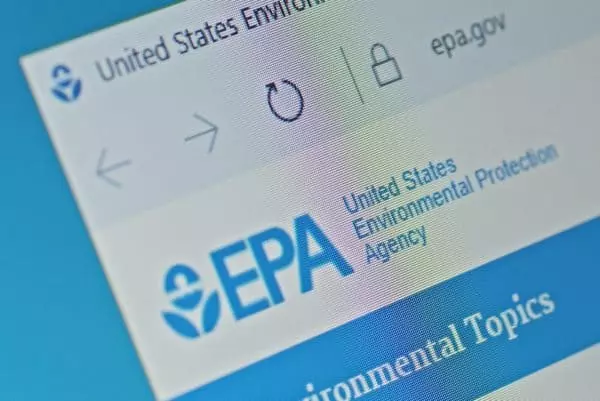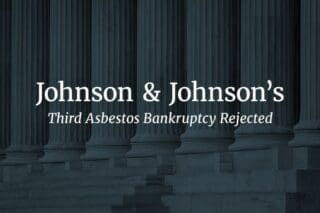
The Environmental Protection Agency is once again under fire for its handling of asbestos regulations, despite decades of evidence supporting the claim that exposure to the toxin poses a serious risk to human health.
In early June, the EPA proposed a Significant New Use Rule (SNUR) that would require importers and manufacturers to seek the agency’s approval at least 90 days before they can resume or start working with asbestos, including any manufacturing, processing, and importing. The SNUR affects a number of product uses that the agency has said are no longer ongoing, including adhesives, sealants, and roof coatings, among a variety of other products.
At the time of the announcement, then EPA Administrator Scott Pruitt said the proposed rule was a sign of the agency, “moving forward to take important, unprecedented action on asbestos.” Critics claim the EPA’s actions are not making the public safer. They contend the move is aimed at loosening restrictions on industry and potentially bringing the carcinogenic mineral back to market. Mesothelioma patient advocate and 12-year survivor Heather Von St. James says the EPA’s actions could have dire impacts down the line.
“I was exposed to asbestos as a child, and now thousands more will potentially be exposed through the negligence of the EPA, despite the very real science that asbestos exposure is deadly,” Von St. James said. “I talk with patients from all over the world, and I’m currently talking with the mother of a 22-year-old who is facing losing her lung, and a lifetime of pain, due to exposure as a child. She is in the prime of her life, yet now has to deal with this cancer. Asbestos kills. Period.”
The proposed SNUR follows in the wake of the EPA’s revelation that it was narrowing the scope of its ongoing asbestos review, which began as the result of Obama-era legislation amending the Toxic Substances Control Act. As part of the 2016 Frank R. Lautenberg Chemical Safety in the 21st Century Act, the EPA is required to perform assessments for ten chemicals, including asbestos, to determine their risk to the general public. However, the agency severely narrowed the scope of its asbestos review to prevent “legacy uses” of the mineral from being included.
The news comes during a time when asbestos is still being found in children’s toys, including crayons and makeup. A recent report found the mineral in Playskool brand crayons purchased at Dollar Tree. Researchers noted that the crayons can also be bought online, including on sites like Amazon. The U.S. Public Interest Research Group has suggested Dollar Tree and Playskool issue recalls for the affected crayons and contact customers.
“Why, in this day and age, is this even happening?” Von St. James asked. “The science is clear; asbestos kills. Why not put lead back in paint? That makes about as much sense as allowing asbestos use again.”




